The best Christmas food in Britain — including 'the Rolls-Royce of turkey' — as chosen by Tom Parker Bowles
Christmas offers a chance to celebrate all those great food producers who work so passionately to ensure that our feast is as ethical as it is delicious. Tom Parker Bowles applauds some of the very best.
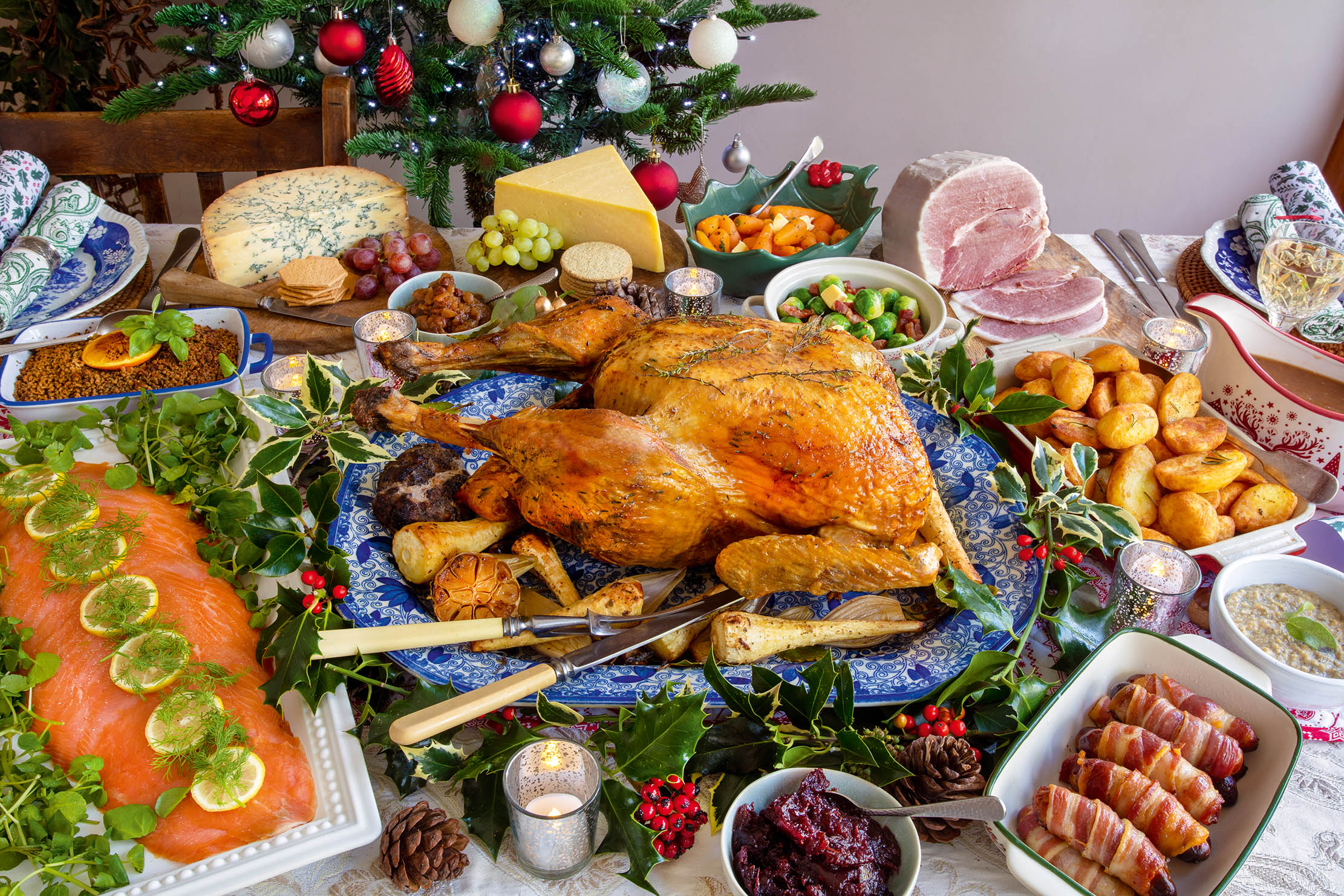

Christmas is almost here and the goose is getting fat. Or so we hope. Because Britain’s poultry farmers are facing an exceptionally worrying run up to the festive season, in the shadow of the UK’s worst ever avian-flu outbreak. Currently, all birds, including free-range ones, must be kept indoors by law. Three million birds had been destroyed at time of writing. As Verity Copas of Copas Turkeys explains: ‘If our birds contract avian influenza, it would not only mean zero sales at the most important time of the year, but the end of our company, too.’
Worrying times, indeed, and, although the prospect of a Christmas without turkey or goose is a grim one, it pales in comparison to the plight of the farmers. God willing, however, all will be fine and the festive feast will continue to feature our favourite birds. Turkey is a relative newcomer to the party (save for the most regal of tables), an American arriviste popularised with the help of Dickens, Scrooge and the Cratchits. Goose, by contrast, has long been a Yuletide staple, back to when Christmas was a riotous, 12-day pagan bacchanalia of drunken carousing and lascivious high jinks (plus ça change, I hear you cry), rather than the church-going, family-friendly affair it is today.
In the past, I’ve banged on enough about the blandness of turkey and my preference for a fat goose or great rib of beef, but now is not the time for some ‘bah, humbug’ rant, what with this being the season to be merry and all that. And there are some farmers who raise a markedly superior gobbler, one blessed with not only succulence, but lashings of flavour, too. This, for me, is what Christmas is all about. A time for giving, obviously — as well as the usual eating, drinking and being merry — but also a heartfelt celebration of this country’s produce, a tribute to all those great farmers and producers who work for passion, rather than profit margin. Those who value flavour over a quick buck. Food heroes, all.
I want birds that have been allowed to root and scratch in the yards, roaming free in grassy meadows. And ham, proper ham, made from happy pigs, cured the old-fashioned way, with time and hard-learned expertise. Bacon and chipolatas, too. Potatoes that can be transformed into crisp, burnished roast beauties. And the Brussels sprout: that wonderful brassica that’s more sinned against than sinning. Not forgetting Christmas pudding, a direct link to Christmas past, spiced and fruited, lavished with dollops of brandy butter.
Turkey
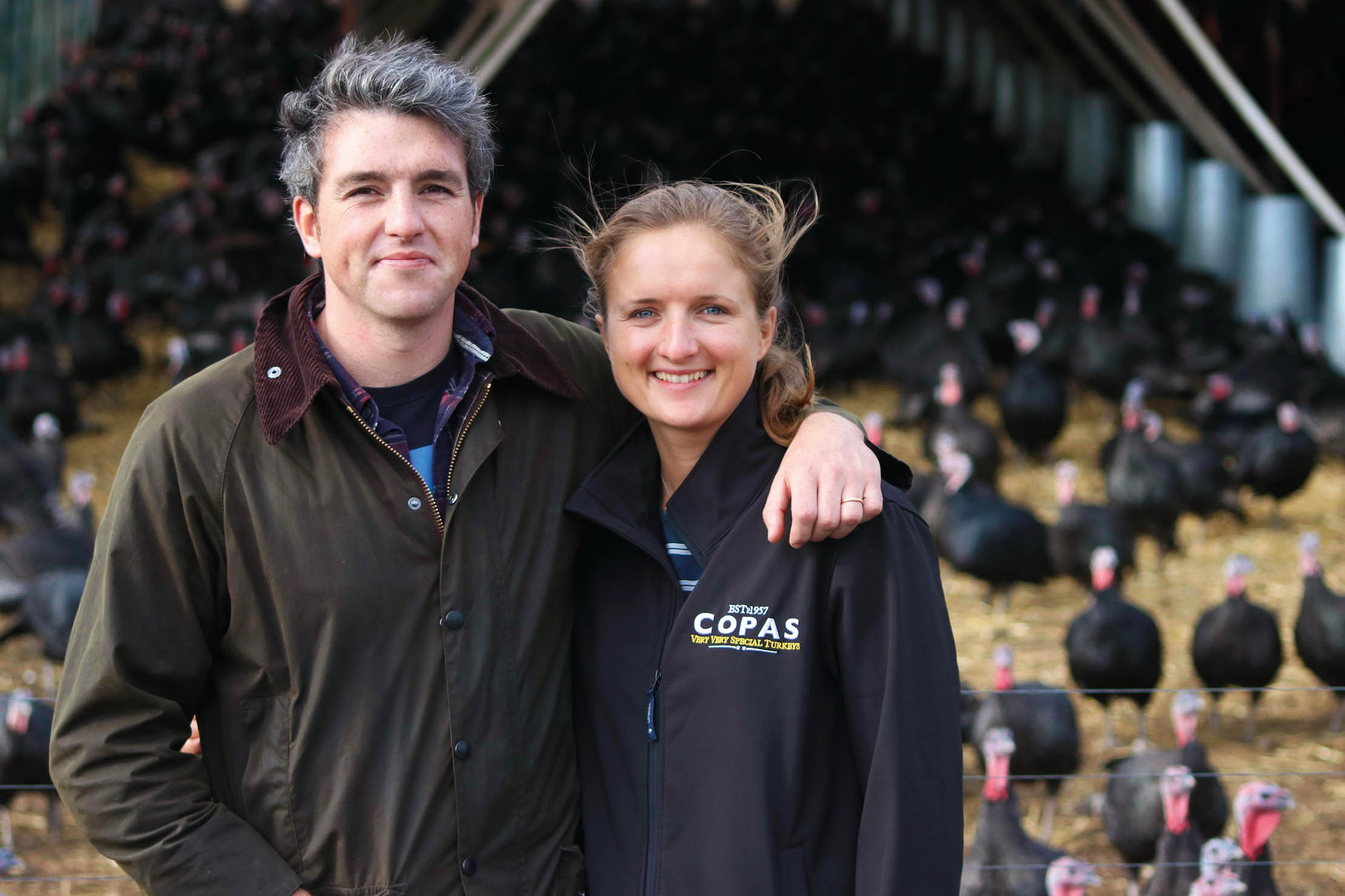
At Copas, it’s all about the welfare of the bird,’ declares Mrs Copas. ‘Happy birds mean happy eaters.’ You can say that again. The farm was established in 1957 and I first visited it more than a decade ago, wandering through the cherry orchards and meadows, where the turkeys roam noisily free. ‘The hatchlings come to us at 24 hours old, at the end of June, and we brood on site, with 24-hour care. That’s very important, to check they’re all ok.’ For the next couple of weeks, they are gradually introduced to natural light, to get them used to the outdoors. At four to five weeks old, they’re let outside. ‘The land is enriched with miscanthus, a natural game-cover crop, and the birds love to scavenge among it,’ explains Mrs Copas. ‘There are lots of herbs in the grass, which provide a varied diet.’
Turkeys are incredibly inquisitive birds, so tambourines and jingly instruments (seriously!) are left out for them. ‘They like to peck and play with them, as they love being entertained,’ she smiles. ‘They must not become bored and we want them to live the happiest life possible.’
Alpacas have also recently been introduced, to scare off the foxes, stamping and spitting the moment Reynard comes near. ‘They’re brilliant guard animals and they really do keep the foxes away,’ enthuses Mrs Copas.
Sign up for the Country Life Newsletter
Exquisite houses, the beauty of Nature, and how to get the most from your life, straight to your inbox.
The birds grow slowly, reaching full maturity at 26 weeks old, unlike the average supermarket turkey of about 12 to 16 weeks old. ‘The vast majority are hens, as they carry their weight better,’ she notes and, in the last few weeks, they develop a ‘wonderful layer of fat, which melts into the flesh when cooking’. They’re then slaughtered, with as little stress as possible, dry-plucked and hung for 14 days to develop still more flavour. The result is miles removed from the dry, dreary supermarket beast — the white meat sweet and delicate, the dark meat packing a serious flavour punch. ‘We put the time in over the year, so you don’t have to on Christmas day,’ notes Mrs Copas. ‘Our 5kg [about 11lb] birds will cook in two hours.’ I once described them as the Rolls-Royce of turkey. One bite and you’ll see why.
Tom’s top turkey suppliers
- Copas Traditional Turkeys, Berkshire — copasturkeys.co.uk
- Daylesford Organic, Gloucestershire — 01608 731670; daylesford.com
- The Ethical Butcher, London — 020–8900 8585; ethicalbutcher.co.uk
- Farmison, North Yorkshire — 01765 824050; farmison.com
- G. Walter, London W14 — 020–7385 6466; www.hgwalter.com
- Phillip Warren and Son, Cornwall — 01566 772244; philipwarrenbutchers.co.uk
Goose
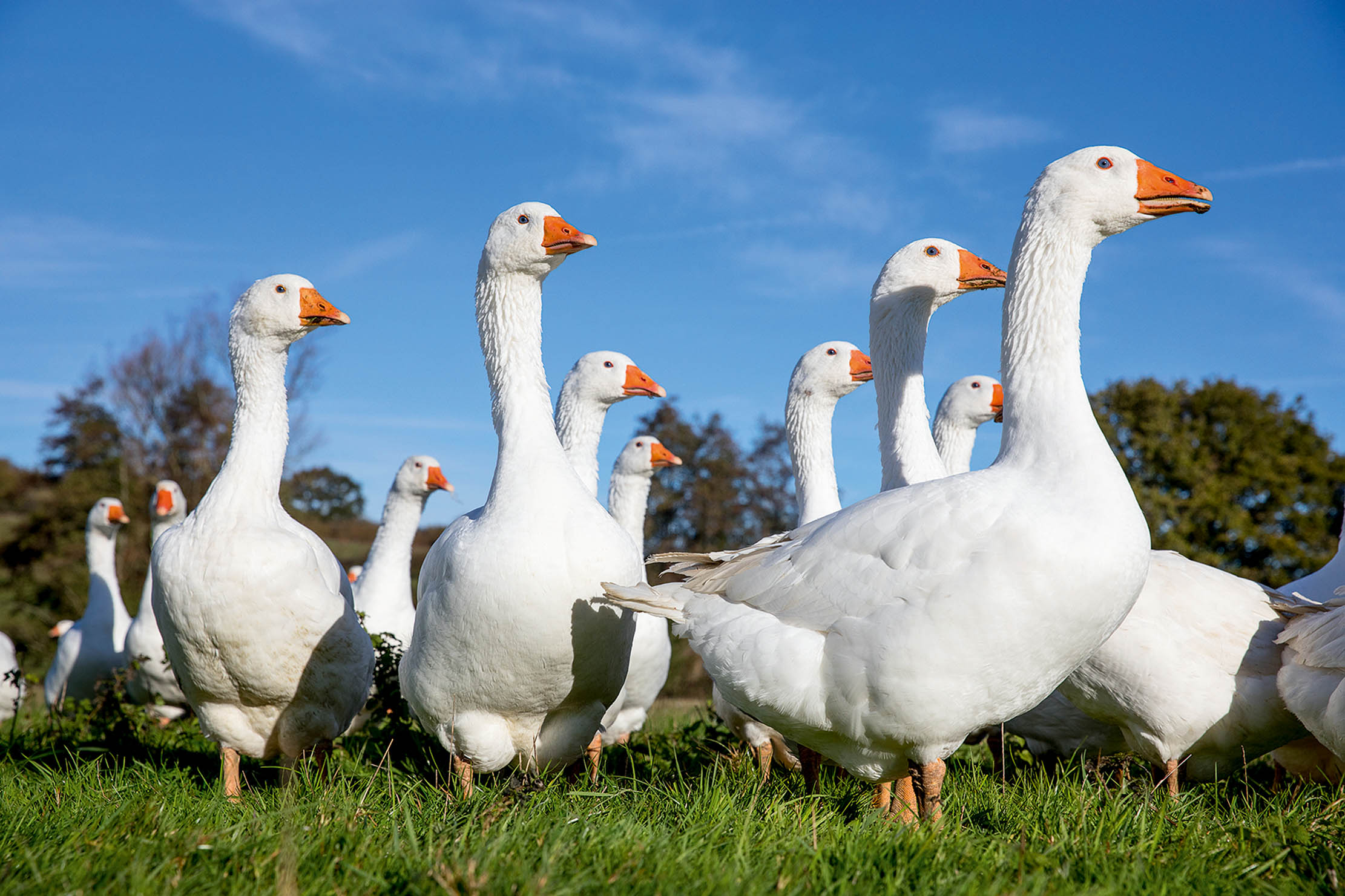
Andy Goodman really knows his geese. And his family farm, sitting deep in the Worcestershire hills, produces some of the best birds in the country. ‘It’s all about the way they’re reared,’ he explains, ‘slow grown, with lots of room to wander, with plenty of whole wheat to get growth and a good strong frame. Corn helps them gain fat and the grass adds essential texture.’
His geese hatch in May and June, before being let out at four weeks old to start grazing on that grass. ‘It really does make all the difference,’ he observes. Geese are highly intelligent birds, too, very inquisitive. Like Copas turkeys, they are allowed to reach full maturity, before being slaughtered at 24 weeks, dry-plucked and waxed ‘to get a lovely finish on the skin’, then hung for 10 to 14 days, to develop flavour and tenderise the meat.
‘Geese do lose a lot of weight during cooking, as all that lovely fat pours out — prick the fat glands under the wings and back of the legs,’ advises Mr Goodman, ‘and make sure the bird has been out of the fridge for at least 12 hours. Stuff them with chopped leeks and apple, place on a rack in a baking tray, cook them for half the time on their back, the other half on their breast and use the fat for your roast potatoes.’ The result is a rich, mildly gamey delight, which tastes of a life very well lived.
Tom’s top geese suppliers
- Goodman’s Geese, Worcestershire — 01299 896272; goodmansgeese.co.uk
- Seldom Seen, Leicestershire — 0116–259 6742; seldomseenfarm.co.uk
- Brisbourne Geese, Shropshire — 01743 741672; brisbournegeese.co.uk
- The Wild Meat Company, Suffolk — 01728 687627; wildmeat.co.uk
Ham, bacon and chipolatas
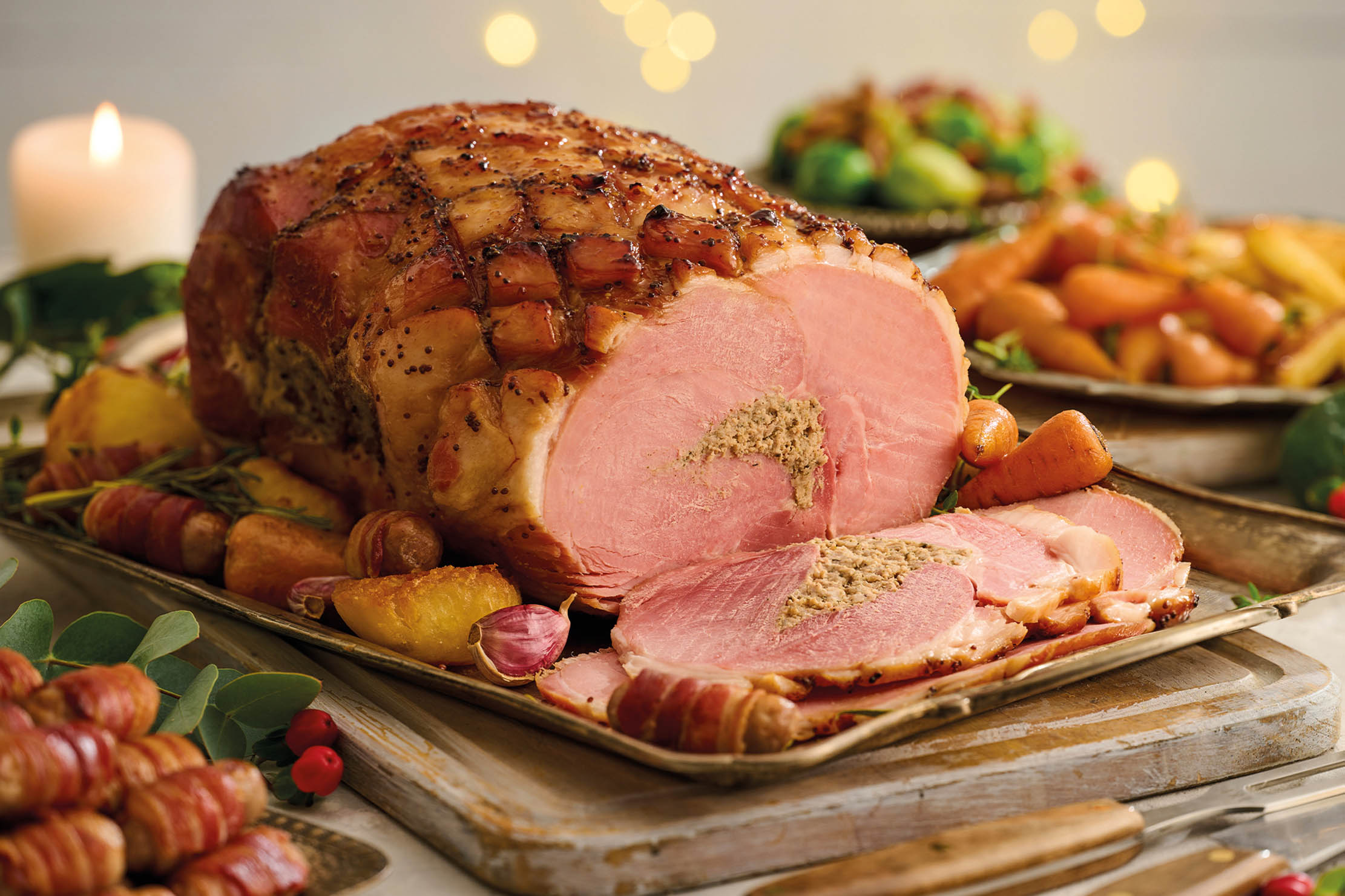
The art of creating the best ham comes down to three key factors,’ declares Mark Gallagher, CEO and owner of DukesHill. ‘Time, care and our special brine recipe we have perfected over the past 37 years. It’s actually quite simple and a labour of love for us.’
His Wiltshire ham uses the leg of an outdoor-bred British pig, which is first injected with the company’s own-recipe brine (a small amount of unrefined brown sugar is added, creating a subtle sweetness), before being submerged in it for a week. The leg is then taken out and left to mature for a further seven days. ‘We believe the defining characteristic of a traditional Wiltshire ham is the natural “mouth feel” of the meat,’ he explains, ‘which should exhibit a tender bite, with none of the “rubberiness” that is often seen in lower-quality products. It’s then steamed for 12 hours. Once it has cooled, we will then either send it to our customers as a naked ham or hand glaze it with one of our homemade glazes, typically honey and mustard or spiced orange.’
You can taste that obsession with quality. The ham is sweet and subtle, gently salty, with an excellent texture. Mr Gallagher likes his with Brussels and squeak, plus a poached egg, on Boxing Day. But it is one of those hams you’ll find very hard to pass without cutting off a slice. ‘We like to consider our hams in particular to be a work of art,’ he asserts.
DukesHill’s bacon is also dry cured. ‘We use traditional curing methods, salting the bacon flitches by hand, combined with our brown sugar, and don’t add any water. Once ready, we allow it to mature naturally over several days in our drying rooms before slicing it. As a result, there’s no water waiting to come out as “white goo” when you cook it, and no annoying shrinkage.’ The smoke is mild, but pronounced, with a proper piggy taste. Bacon as it should taste.
As for their chipolatas… good-quality pork, beautifully seasoned with depth, sweetness and the most wonderfully lingering length.
Tom’s top butchers
- DukesHill, Shropshire — dukeshillham.co.uk
- Daylesford, Gloucestershire — daylesford.com
- Lishman’s of Ilkley, West Yorkshire — lishmansbutchers.co.uk
- Emmett’s, Suffolk — emmettsham.co.uk
- G. Walter, London W14 — www.hgwalter.com
Christmas pudding
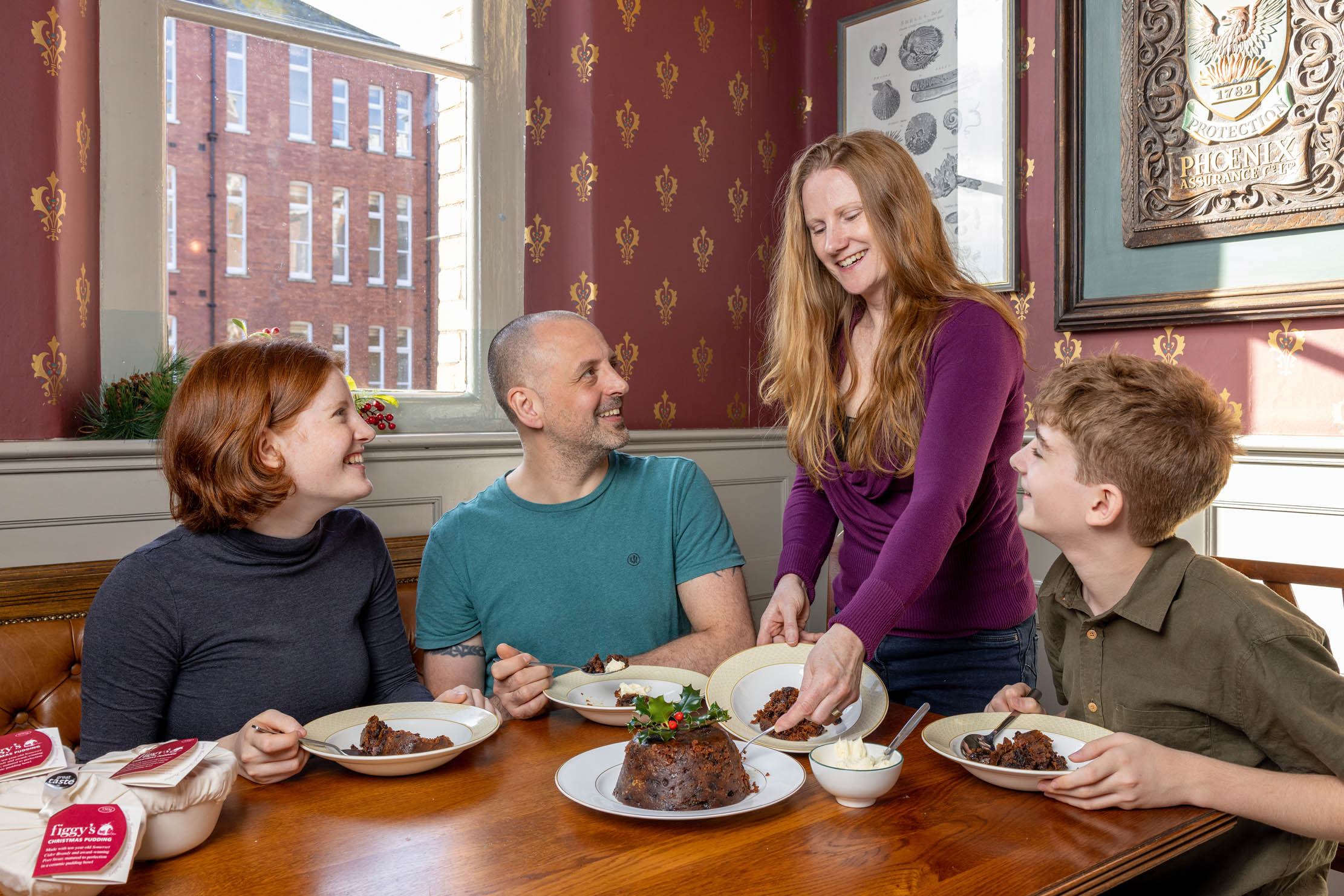
We make them all ourselves,’ explains Figgy’s Jo Evans from her home in Devon, ‘to our old family recipe, using Somerset cider brandy and local stout. They’re matured for three to four months, which is not quite as long as they used to do it. But we think it’s the perfect time.’ They use vegetable suet, rather than beef, but Mrs Evans doesn’t believe it detracts from the final eating. ‘People love tradition and there’s so much food history in a Christmas pudding. We’re always told they remind our customers of their grandmother’s pudding, a taste of the past. We don’t believe in reinventing something that is so perfect already.’ As you’ll see from the accolades from punters and food writers alike, this is a serious pudding, rich, stuffed full with fruit and spice and good old-fashioned succour.
Fortnum & Mason has four different puddings. ‘The King George is our most classic,’ notes Liz Morgan, head of food, wine and spirits. ‘It’s made with beef suet, plus punchy Christmas vine-fruit flavours and lashings of Fortnum’s cognac and Pusser’s Navy rum.’ There’s also the St James, exactly the same, save being suitable for vegetarians. The Magnificent is the ‘show stopper’, made with damson gin, Marcona almonds and a plum-jam glaze, together with whole orange slices on the outside and a sweet plum-jam centre. Finally, there is a Figgy Pudding that includes a good whack of Fortnum’s fig liqueur.
Tom’s top pudding suppliers
- Figgy’s, Devon — figgys.co.uk
- Fortnum & Mason — fortnumandmason.com
- Nana Lily’s, Worcestershire — nanalilys.com
Sprouts and spuds
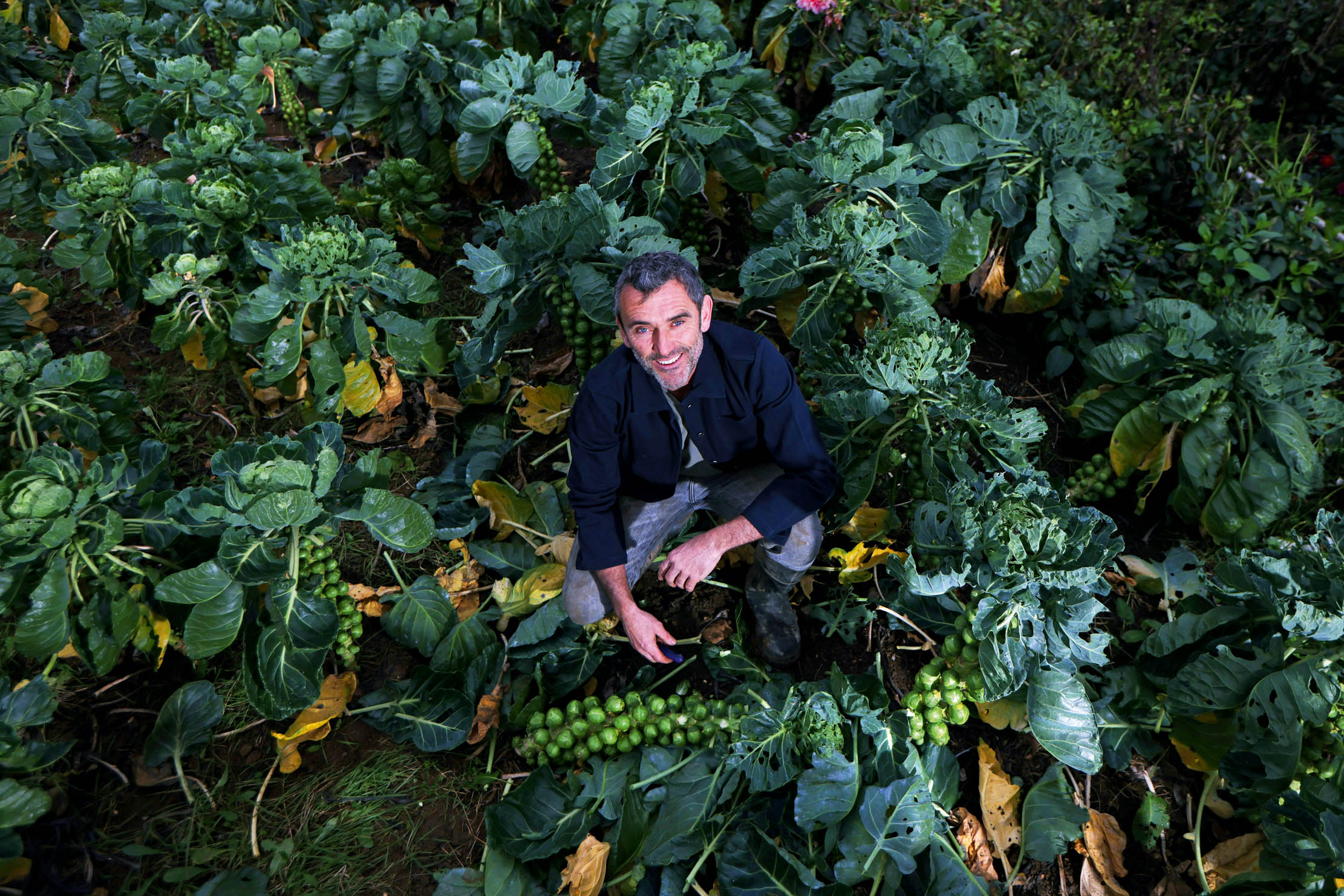
This year, the Brussels sprouts got off to a fairly ropey start,’ admits Jake Pickering, senior manager for agriculture at Waitrose. ‘They were planted in July and August, when it was very dry. But wetter, milder conditions mean they’ve now caught up. We source from farms in Fife in Scotland, all the way down to Lincolnshire, so we have a good spread of growing season. The problem is Mother Nature isn’t too bothered which day Christmas falls on! Still, it’s looking good for sprouts. We have a breadth of varieties, too. And, as they go straight from field to store, they’re very fresh indeed.’
Jez Taylor, head of the market garden at Daylesford, agrees. ‘Sprouts can have their issues,’ he acknowledges, speaking from the middle of one of his sprout fields. ‘We plant at the end of June and they have a long growing season, but they’ve grown massive this year, with really large buttons. That’s the hard bit, getting a good set of buttons.’ He feels that sprouts get a bad rap. ‘We should change the way we cook them — they’re the epitome of brassica flavour depth, it’s simply that people don’t cook them well. I like roasting them with thyme, olive oil and garlic, so they’re crisp on the outside and gooey in the middle — amazing,’ he says with a grin.
When it comes to potatoes, I tend to favour the floury varieties, such as King Edward and Maris Piper, but Mr Taylor disagrees: ‘Everyone says you need a floury one,’ he contends. ‘The thing about them is the cells are bigger and there’s less dry matter and that equates to less flavour. I use a main-crop Alouette, for me an improvement on Desiree. More waxy than fluffy, yet, if you parboil them until they nearly fall apart, they make a great roast potato.’
Nonetheless, whatever you use, both Mr Pickering and Mr Taylor agree that there will be plenty of potatoes for Christmas, so we can all sigh a breath of relief.
Tom’s top veggie suppliers
- Waitrose — waitrose.com
- Daylesford — daylesford.com

Credit: Grillo
How to cook a Christmas turkey on the barbecue
If the oven breaks down on Christmas Day, fear not: you can cook Christmas turkey on the barbecue with relative
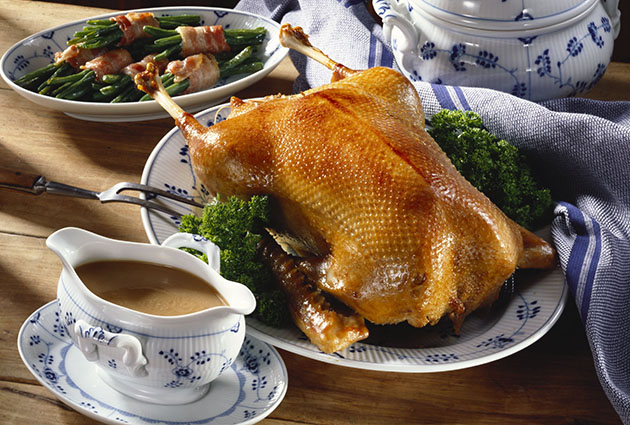
Perfect roast goose recipe from Mark Hix
Cooking the perfect Christmas goose, with delicious gravy, is a fantastic way to celebrate Christmas. Mark Hix explains how it's
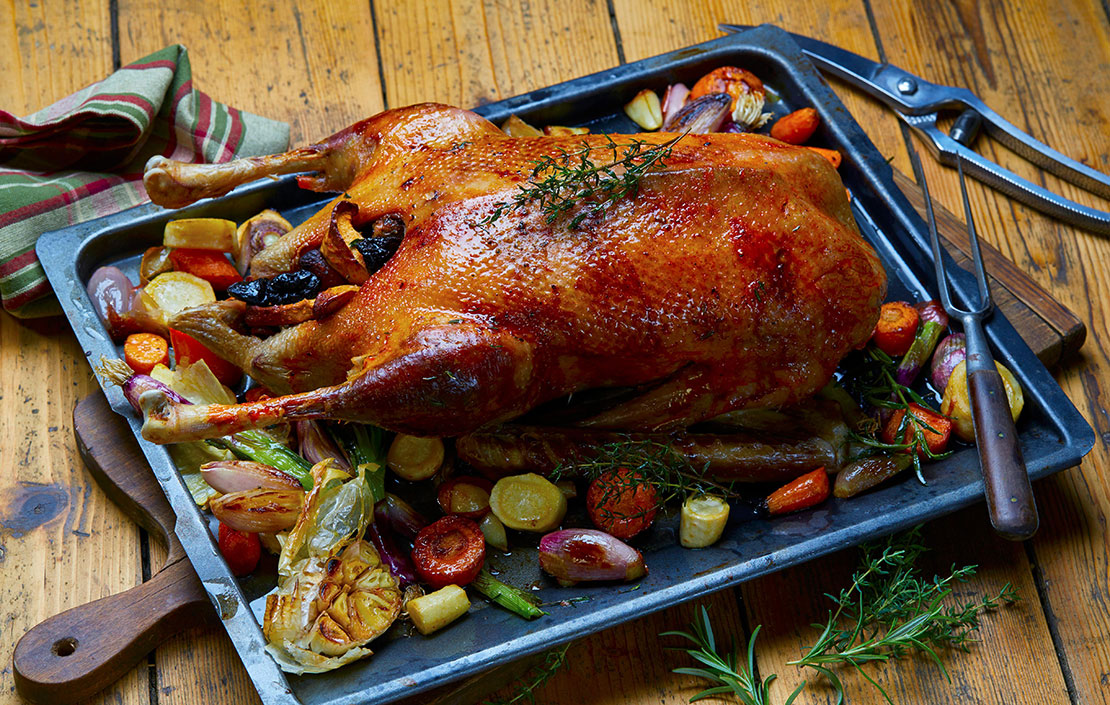
Credit: Alamy
Nine things you ought to know if you're having goose for Christmas
If you're looking for a change from turkey for Christmas dinner, goose is the obvious choice – but there are
Tom Parker Bowles is food writer, critic and regular contributor to Country Life.
-
 Why British designers dream up the most desirable hotels
Why British designers dream up the most desirable hotelsWhen it comes to hotel design, the Brits do it best, says Giles Kime.
By Giles Kime Published
-
 The five minute guide to 'The Great Gatsby', a century on from its publication
The five minute guide to 'The Great Gatsby', a century on from its publication'The Great Gatsby' sold poorly the year it was published, but, in the following century, it went on to become a cornerstone of world literature.
By Carla Passino Published
-
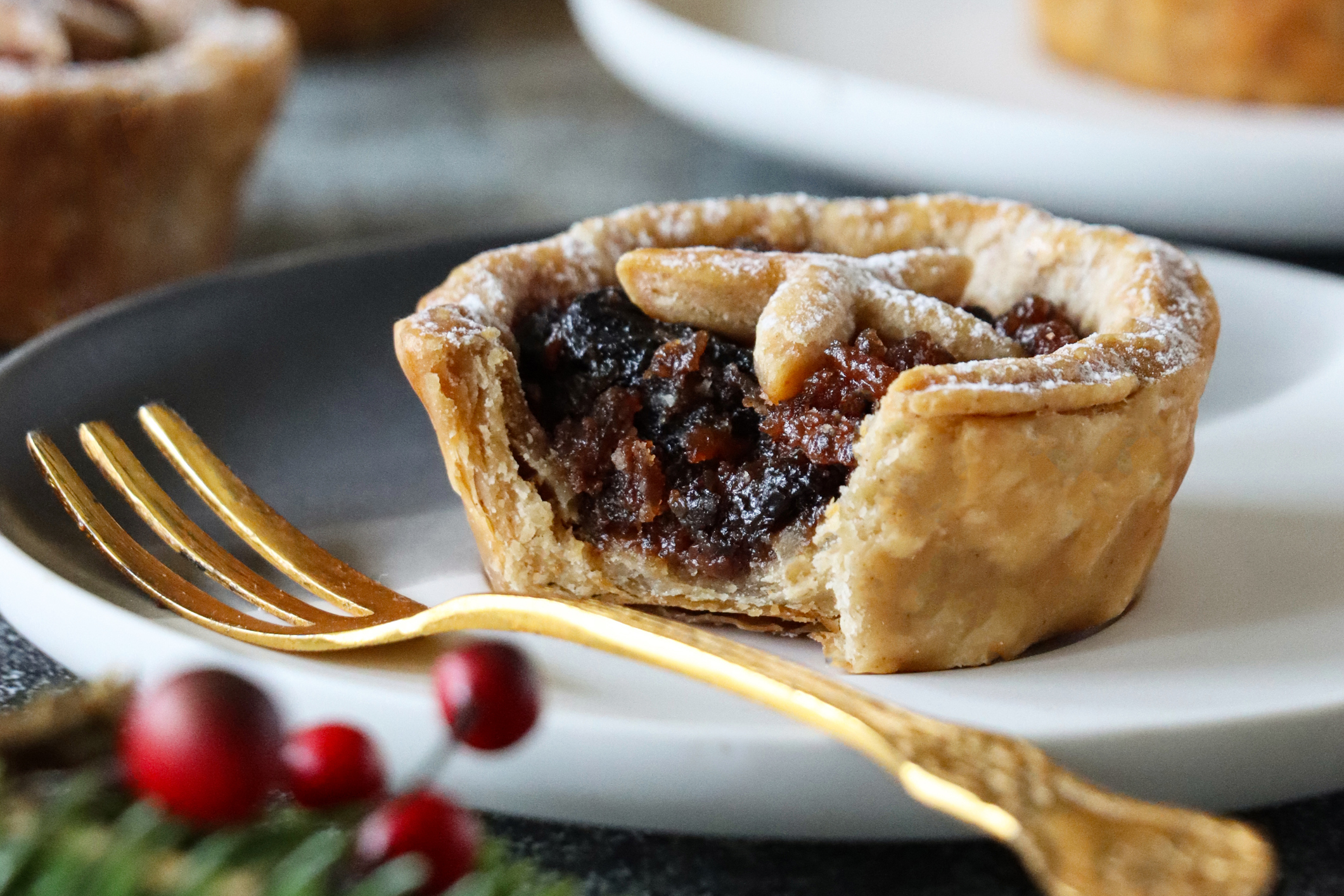 Mince pies really did once contain meat — and this Victorian recipe will convince you that they should to this day
Mince pies really did once contain meat — and this Victorian recipe will convince you that they should to this dayOnce packed with meat, such as ox tongue and mutton, alongside dried and candied fruit and extravagant spices, the mince pie is not what it once was — and food historian Neil Buttery says that's made them worse.
By Neil Buttery Published
-
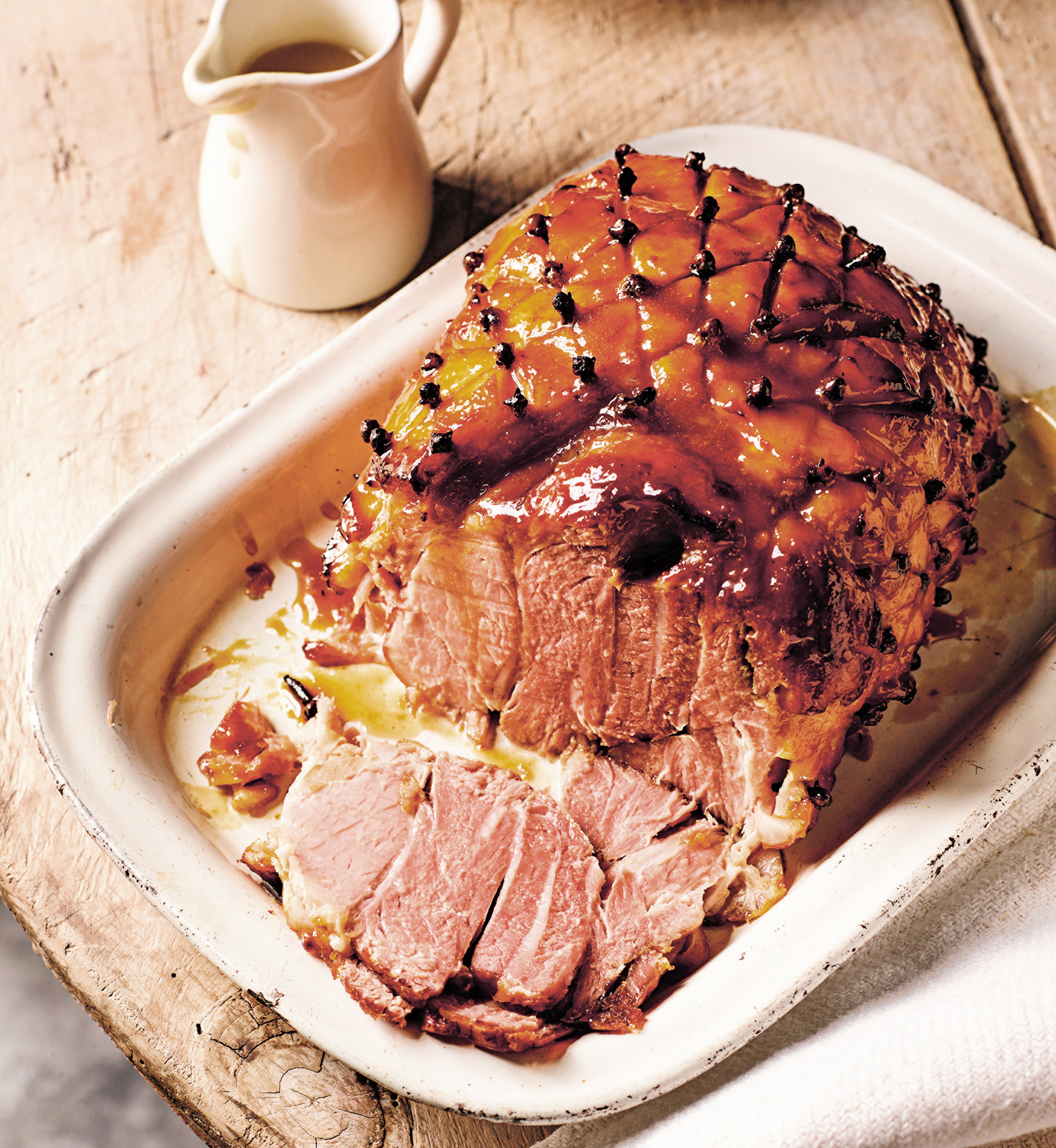 Tom Parker Bowles: Forget turkey and pigs-in-blankets — the Christmas ham is the king of the yuletide feast
Tom Parker Bowles: Forget turkey and pigs-in-blankets — the Christmas ham is the king of the yuletide feastRibboned with fat and gleaming with a clove-studded glaze,Tom Parker Bowles sings the praises of the succulent Christmas ham.
By Tom Parker-Bowles Published
-
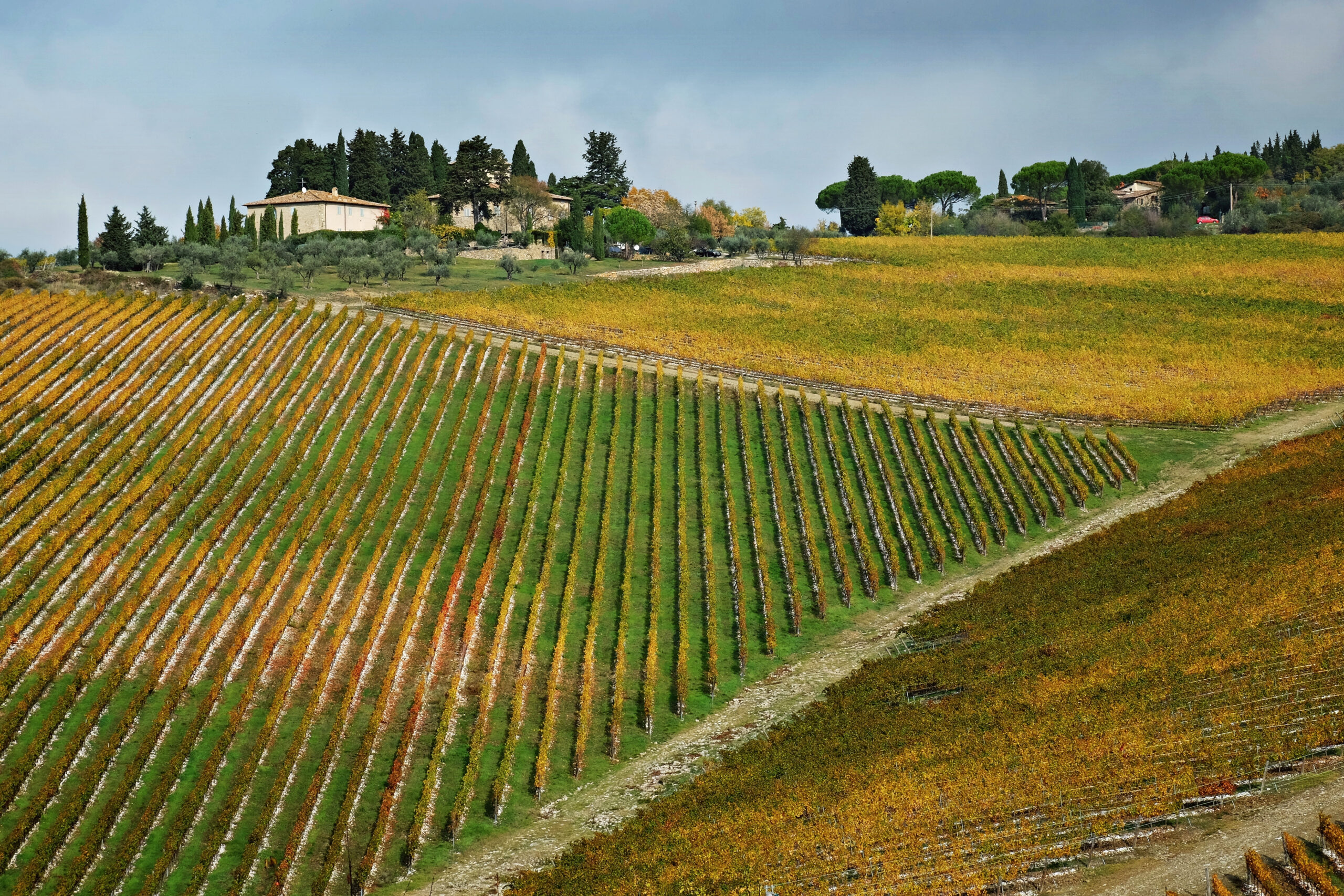 What to get the wine lover who has everything? How about a 300-bottle barrel, a string of über-vintages or a wine that comes with a trip on a private jet
What to get the wine lover who has everything? How about a 300-bottle barrel, a string of über-vintages or a wine that comes with a trip on a private jetOne of the most storied wine-producing families in Italy has put up a series of rather incredible bottles (and more) in Christie's impending fine wine auction.
By Toby Keel Published
-
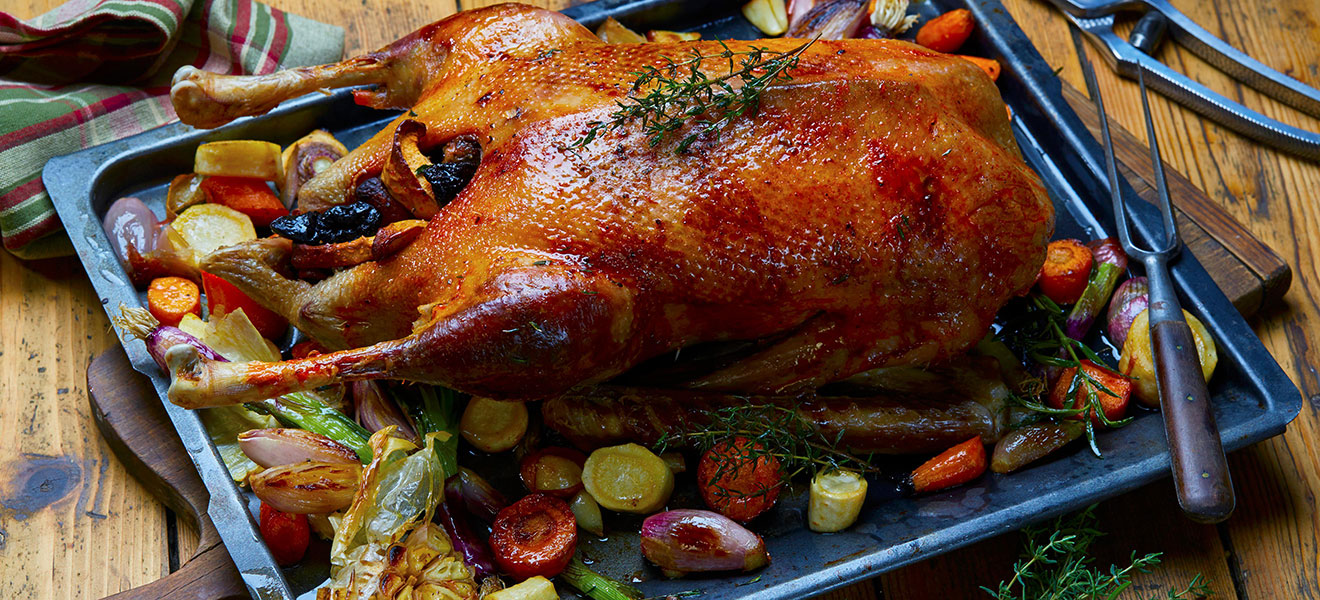 Nine things you ought to know if you're having goose for Christmas
Nine things you ought to know if you're having goose for ChristmasIf you're looking for a change from turkey for Christmas dinner, goose is the obvious choice – but there are a few things to think about, as Kate Green explains.
By Kate Green Published
-
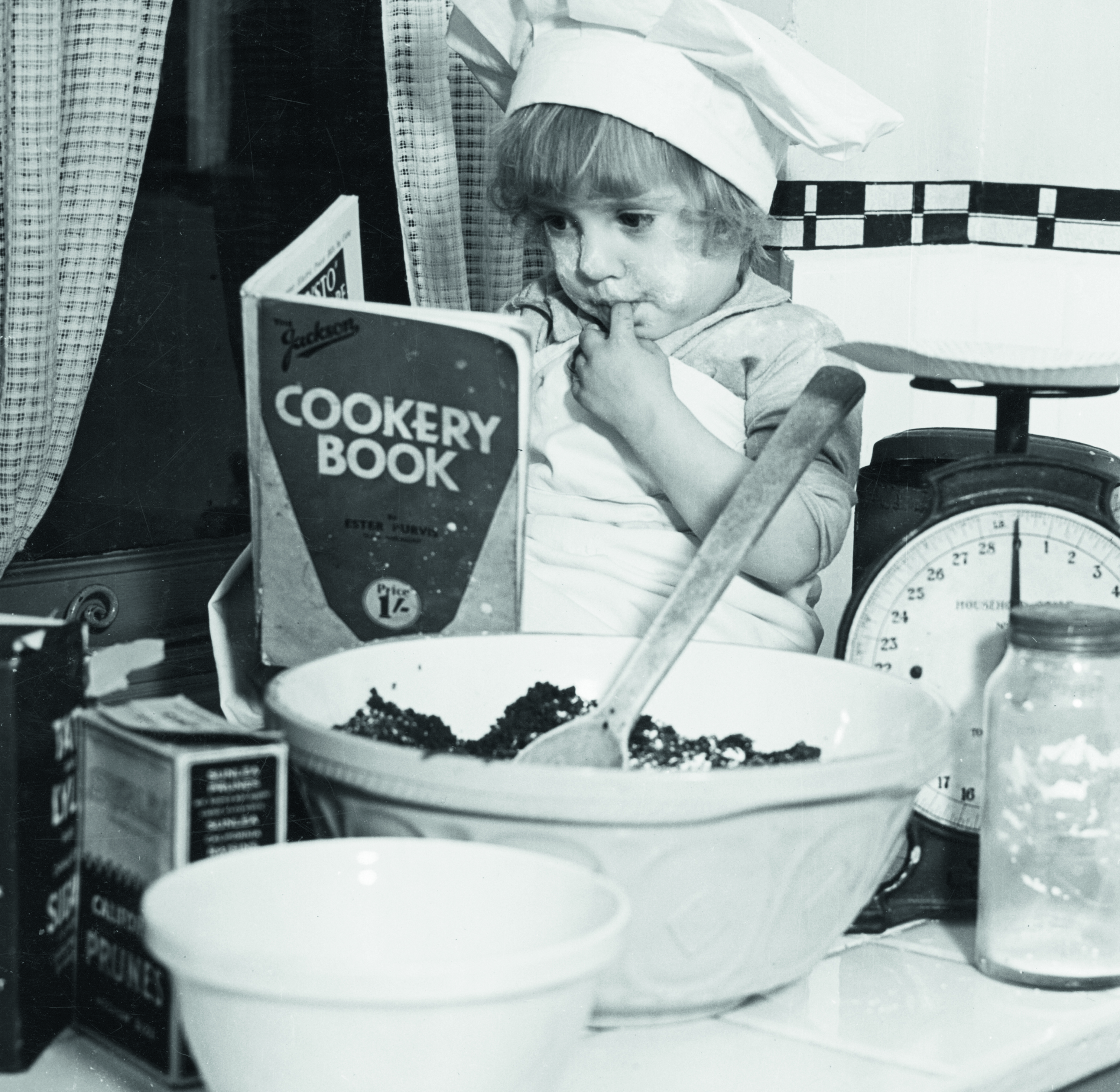 When did Stir-up Sunday first begin?
When did Stir-up Sunday first begin?On the last weekend before Advent, families gather to make Christmas pudding on the day we know as Stir-up Sunday. But when did we start giving it that name? With Stir-up Sunday 2023 falling on November 26th, Neil Buttery takes a look.
By Country Life Published
-
 Perfect roast goose recipe from Mark Hix
Perfect roast goose recipe from Mark HixCooking the perfect Christmas goose, with delicious gravy, is a fantastic way to celebrate Christmas. Mark Hix explains how it's done.
By Country Life Published
-
 Christmas drinks gift guide: Best gin, best whisky, beer and more for the festive season
Christmas drinks gift guide: Best gin, best whisky, beer and more for the festive seasonWhether you're keen to pour your own draft beer, drink Cotswolds whisky or enjoy a raft of different gins, we've got you covered.
By Toby Keel Published
-
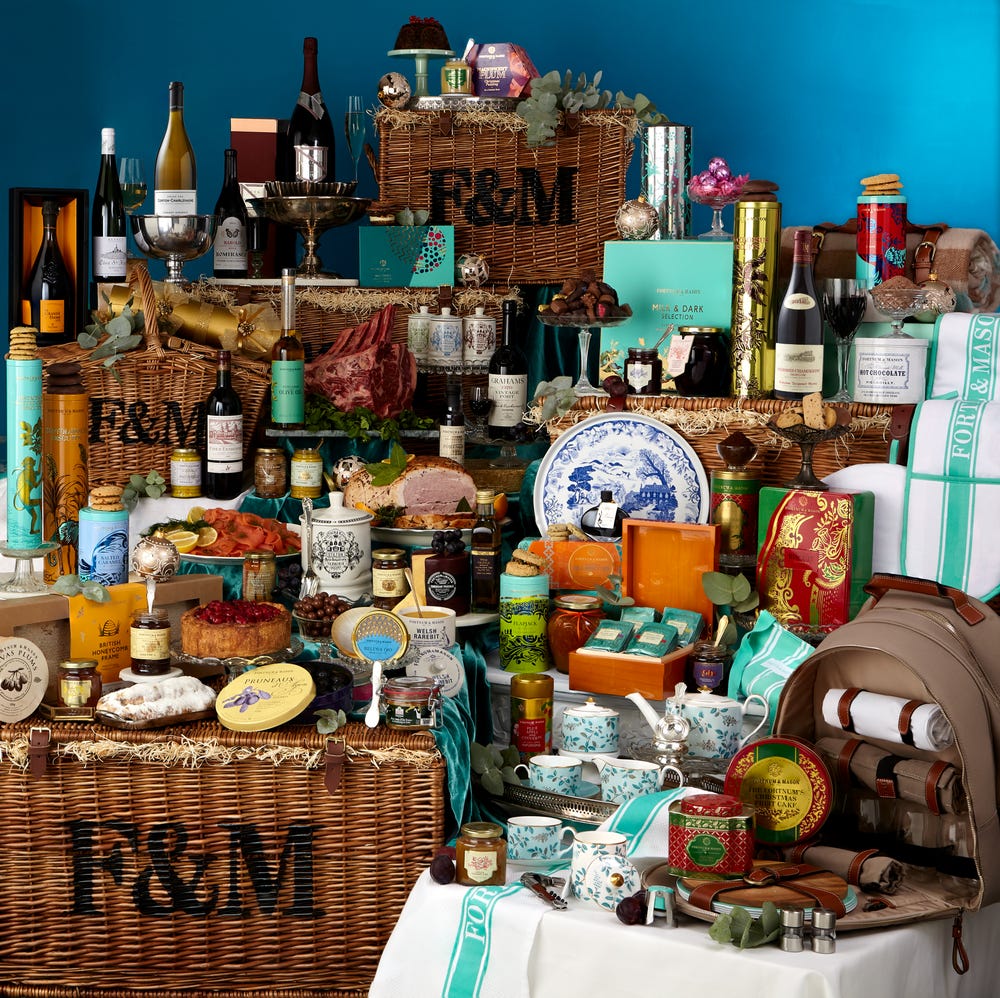 Sumptuous Christmas gifts for foodies, from a chocolate library to a £6,000 hamper
Sumptuous Christmas gifts for foodies, from a chocolate library to a £6,000 hamperAfter something special for a person who really appreciates their food? Our suggestions are certain to have something that's just right.
By Country Life Published